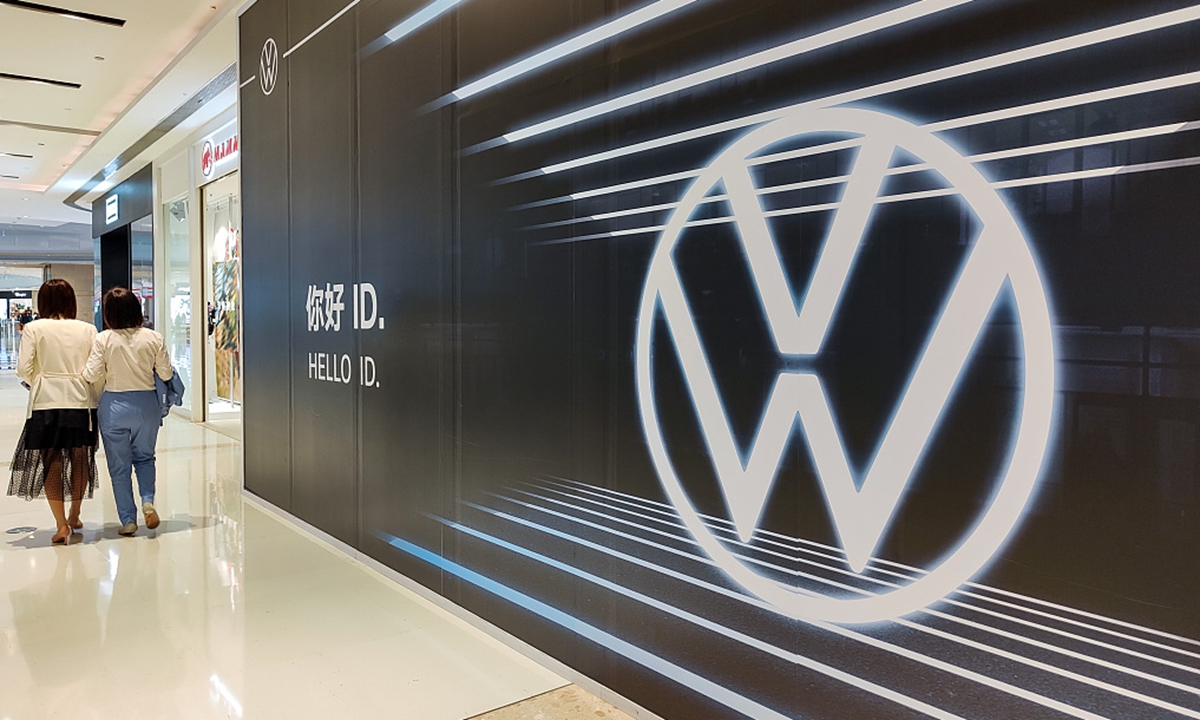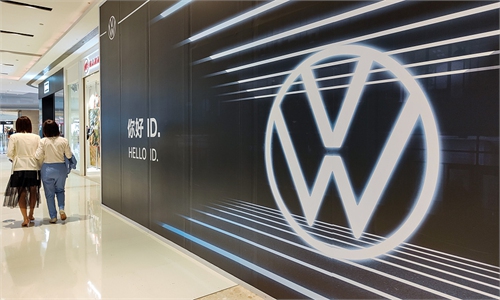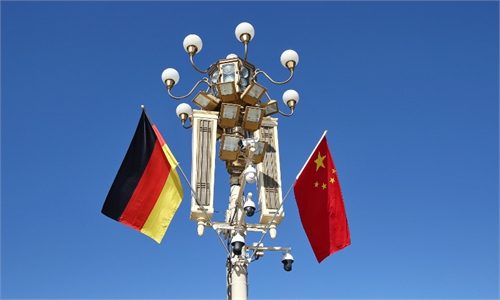VW China chief saying no evidence of forced labor in Xinjiang plant shows EU business community positive on investing in China: expert

File Photo: VCG
A senior executive of Volkswagen (VW) visiting the SAIC Volkswagen joint venture plant in Xinjiang and stating that there is no evidence of human rights violations or forced labor, despite pressure, has sent a clear signal that the European Union's (EU) business community is positive on investing in China, according to a Chinese expert.
The remarks came after Ralf Brandstätter, VW's China chief, toured the plant in February, and said that "there is no evidence of human rights violations or forced labor at the joint venture site before or after my visit."
"The plant of the SAIC Volkswagen joint venture is no different from other plants of the joint venture companies in China. I met a committed team. My impression is that this also applies to the management," according to the information VW shared with the Global Times.
He also noted that the Urumqi plant has a diverse workforce, with 29 percent of employees belonging to minorities, including 17 percent Uygurs. The different ethnic groups are about equally distributed across production, technical jobs and also management.
Brandstätter praised the good working atmosphere and integration measures such as a Halal canteen, multilingual signage and respect for Uygur holidays. In addition, great value is obviously placed on good togetherness. Before the pandemic, many events were held there, such as family days. These are now starting up again, he said.
"The workers told me that they were grateful for their jobs at the factory. The work gives the families a good, self-determined life," he said.
He said that VW agree with their Joint venture partner SAIC that basic values and law must be respected and protected in joint ventures. This also applies to the joint venture plant in Urumqi. The aim is to create very good working conditions locally. SAIC also has a code of conduct and there is agreement that they do not tolerate human rights violations, he said.
Such remarks from a senior executive of Volkswagen has sent out a clear signal that the German business community is positive on investing in China, Sun Yanhong, a senior research fellow at the Institute of European Studies, Chinese Academy of Social Sciences (CASS), told the Global Times on Thursday.
Sun noted that China's large market scale, smooth logistics, and high-quality labor force make the country a promising market for German and European companies to invest in, particularly in the context of a slowing global economy.
In a financial result in the third quarter released in October last year, the Volkswagen Group said the recovery in China continues to accelerate with a 26-percent increase in deliveries in the third quarter, and a 33-percent increase in deliveries in September.
The Volkswagen Group said it is thus well on its way to doubling deliveries of all-electric vehicles in China, its largest market, even compared with the previous year as a whole.
Sun from CASS said that the remarks of the VW'S China chief also sent a clear signal that the European business sector remained confident in China's investment environment despite US' increasing crackdown on China which added to the difficulties and uncertainties for European business operation in China.
According to a recent report from the Germany-based think tank Kiel Institute for the World Economy, a decoupling of the EU from China will reduce Germany's GDP by 1 percent in the long term even if the EU establishes a new supply system. It added that "The impact ... corresponds to a lost value added of €36 billion every year."
Germany is China's biggest trading partner among the EU member states, said Mao Ning, the spokesperson of Ministry of Foreign Affairs on Thursday.
According to Germany's statistics, in 2022, trade between the two countries grew about 21 percent year-on-year to 297.9 billion euros ($319.95 billion). China has been Germany's most important trading partner for seven years in a row.
German leaders have said they are against decoupling in any form on many occasions, Mao said.
The close economic and trade ties between China and Germany is an epitome of such ties between China and the EU. In 2022, despite headwinds, China-EU trade rose 5.6 percent and the EU investment in China surged 96.6 percent year-on-year, according to the ministry.
China has refuted the disinformation related to so-called "forced labor" in Xinjiang fabricated by some countries.
In recent times, some countries have been manipulating Xinjiang-related issues and fabricating disinformation about the so-called "forced labor" in Xinjiang. Essentially they are seeking to undermine the prosperity and stability in Xinjiang and contain China's development and revitalization under the pretext of human rights, said China's top diplomat Wang Yi in July of 2022.



